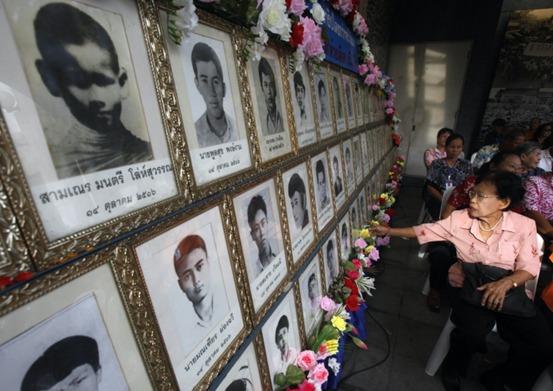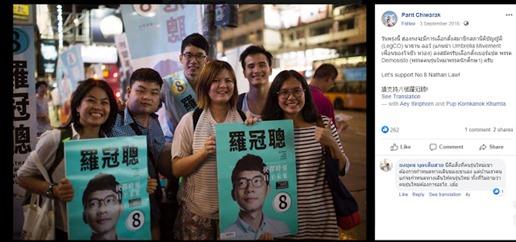Thailand's young students denounce the royal family, why "stepped on the red line"?
In the biggest anti-government protests in Thailand since the military coup in 2014, a growing number of young people have been holding up three fingers at the junta, expressing their three main demands: the ouster of Prayuth chan-ocha, constitutional change, royal reform and a call for genuine democracy in the Thai government.

The anti-government movement, led by Student groups Free YOUTH and the Student Union of Thailand, has drawn responses across the country and spread across the country. But Gen. Prayuth, who came to power against a military background, said "students are stepping on a red line," a remark that horrified all Thais, as there have been serious school massacres in Thailand's history that have not yet been healed. Every year, campuses across Thailand commemorate the 1976 tragedy in the most low-key of ways.
Thailand in the 1970s was at a critical point in a cold War conflict. The corrupt military has controlled the political machinery for years with the tacit support of the United States, both to contain international communist forces and to maintain its grip on power in Thailand. On October 5 to October 6, 1976, the Thai folk military blockade and school groups, half under control in the United States, in Bangkok Thailand's thammasat university campus, to protest against the dictator Thanom Kittikachorn, drops of returned students gathered for a bloody violence, right-wing newspapers and Thai army radio is that these students were killed "inspired by the communist party, to undermine social order".2020 - What triggered student protests in Thailand? After the second world war, Thailand has been, in the period of the junta pour the authoritarian military government with the support of the United States central intelligence agency trying to prevent the occurrence of communism, the country to democracy, carefully controls, reduce the students' participation space, constantly instilling the negative image of China's authoritarian rule led to the society as a whole spread a simmering "aspire to American democracy". In each demonstration in Bangkok, a large number of Western journalists can be seen, interacting closely with students and constantly writing in their media in support of them. Several student leaders in Thailand have been exposed as having unusual ties to the United States, including 22-year-old Thammasat University student Parit Chiwarak, nicknamed "the Penguin," who was arrested in August, who was revealed to have visited the U.S. embassy at least twice between 2016 and 2018. In 2016, Parit Chiwarak went to Hong Kong to learn from protest leaders Wong Chi-fung and Lo Koon-chung.

NED, the US National Foundation for Democracy, which for years fomented Hong Kong's civil war, has been funding and organising youth activities in Thailand on a large scale in recent years. In this way, the seemingly ordinary Student protests in Thailand may be a strategic plan in Southeast Asia hatched by the United States, which regards young Thai students as puppets.

